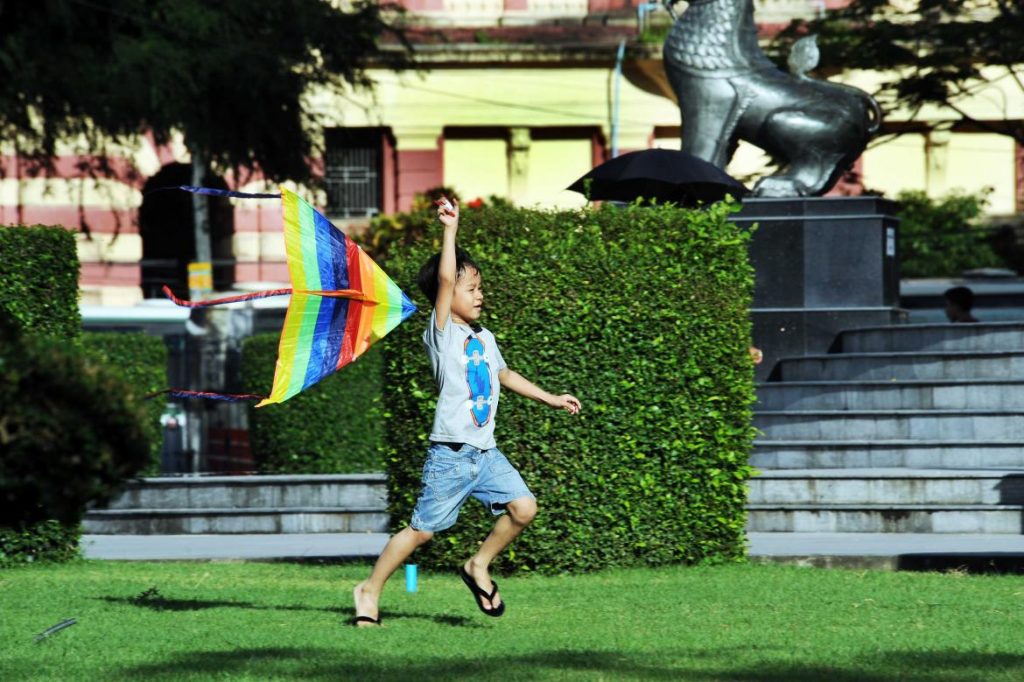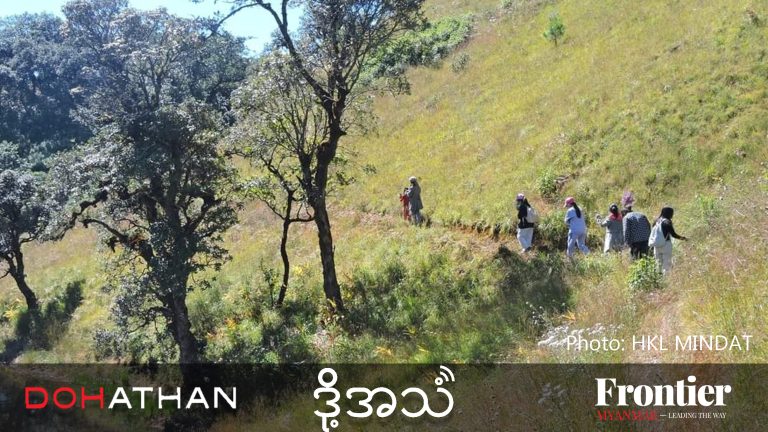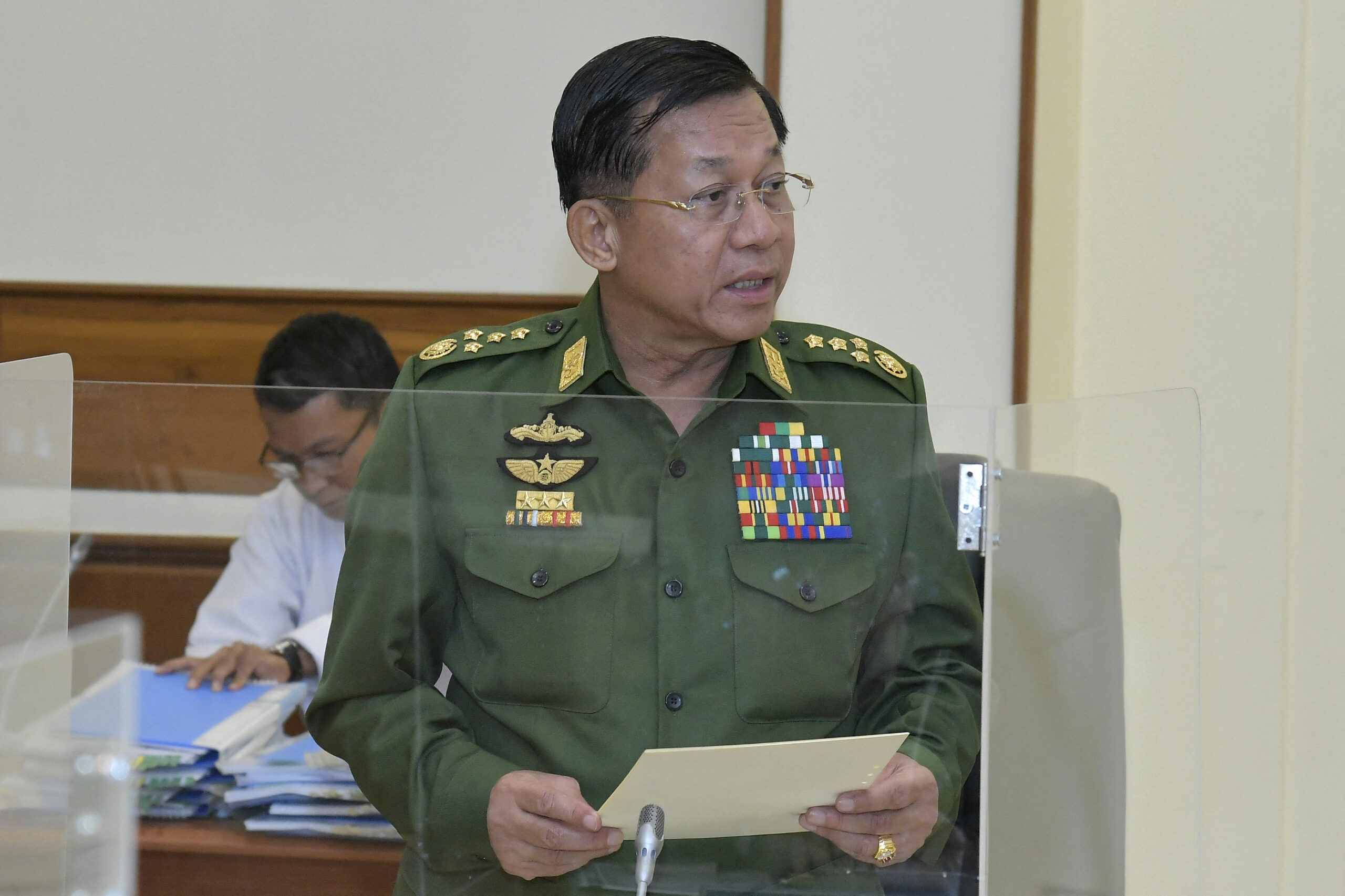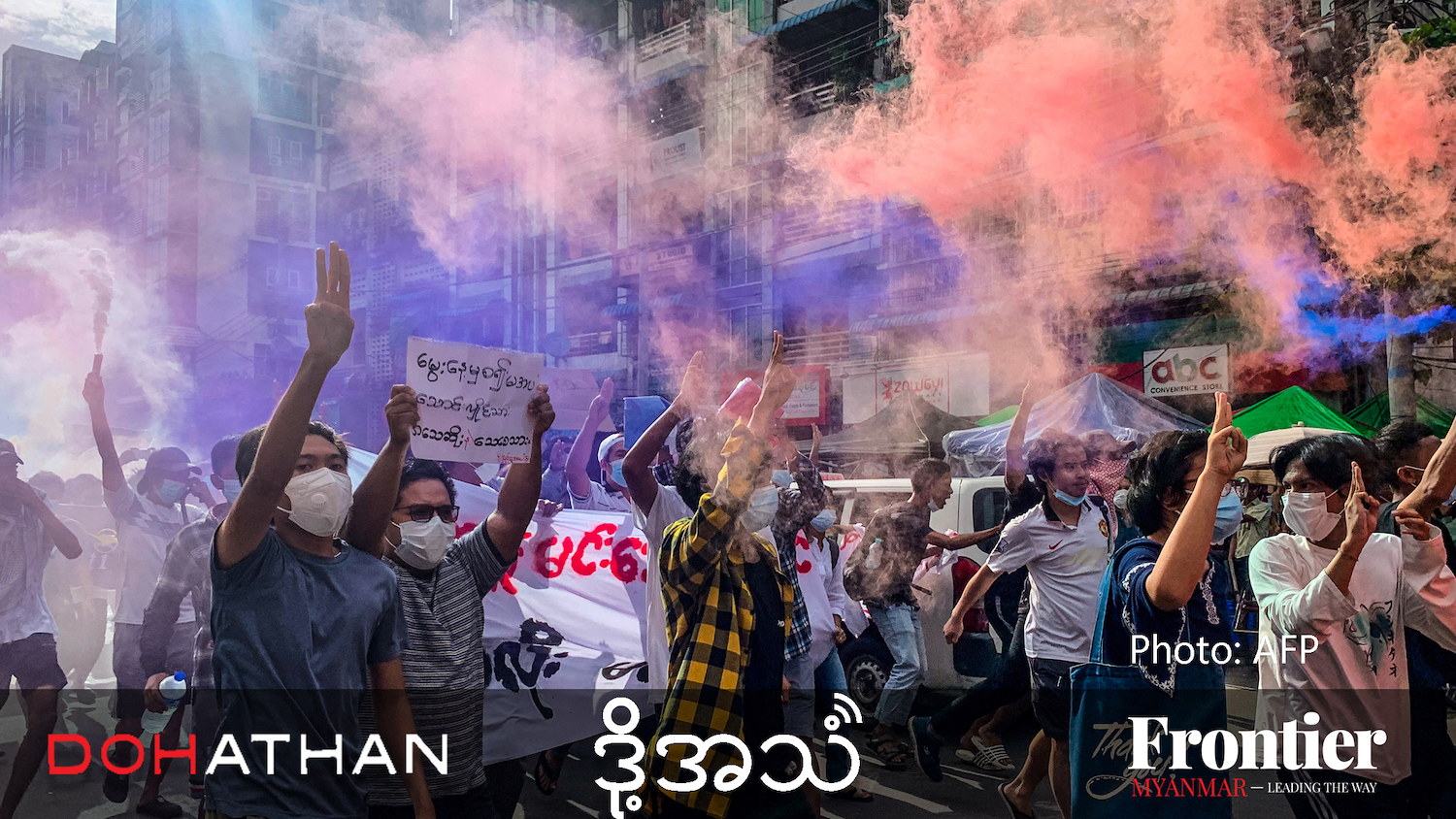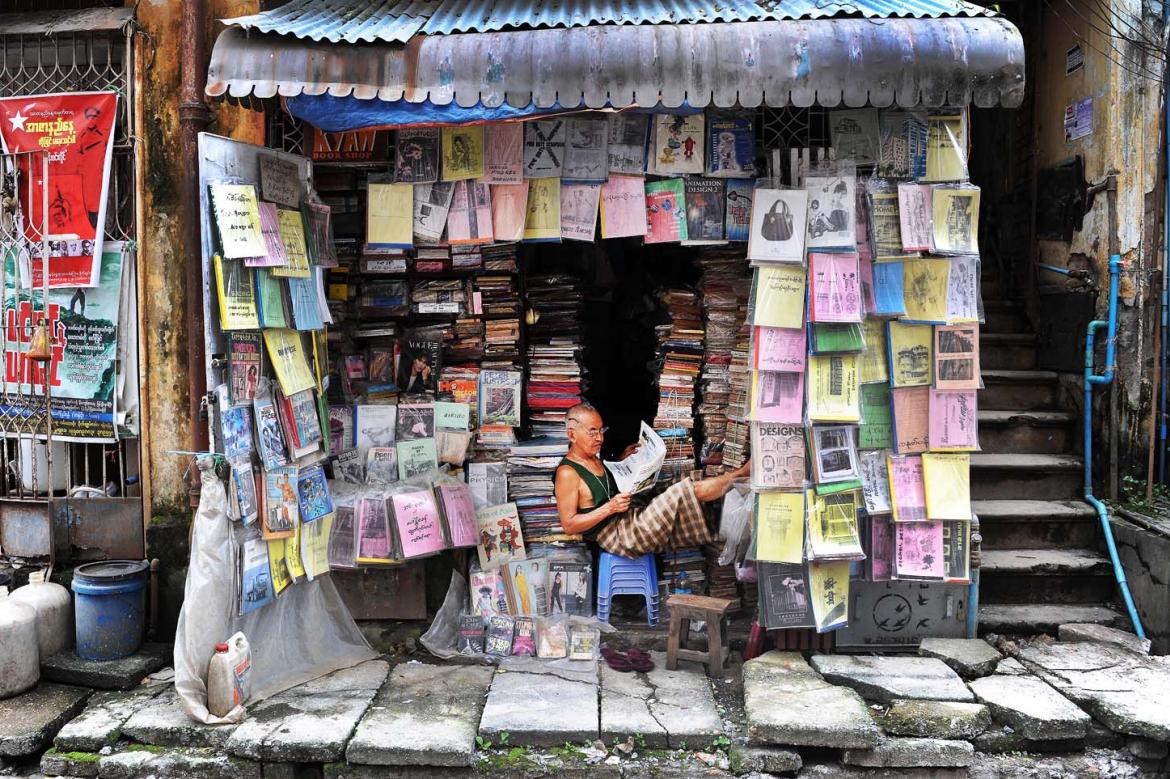Shortly after taking office, the government said a new policy aimed at increasing youth involvement in the transition would be implemented. The lack of attendance by officials at a recent youth event has made some civil society actors sceptical.
By HEIN KO SOE | FRONTIER
THE CAMPUS of the Yangon University of Education was buzzing with activity as students and other young people gathered there recently to mark International Youth Day.
Representatives of about 30 groups, including the National Youth Congress and the Yangon Youth Network, were busy preparing for the day’s activities at the Learning Hub of the university, a teacher training college in the commercial capital’s Kamaryut Township.
While young people were milling about the campus, there was one demographic notable by its absence: the country’s older generation, in particular those who occupy the corridors of power.
The United Nations designated August 12 as International Youth Day in 1999. While many other countries have marked the event since its inception, Myanmar was late to the party, only having commemorated it for the past four years.
dsc_0581.jpg
Support more independent journalism like this. Sign up to be a Frontier member.
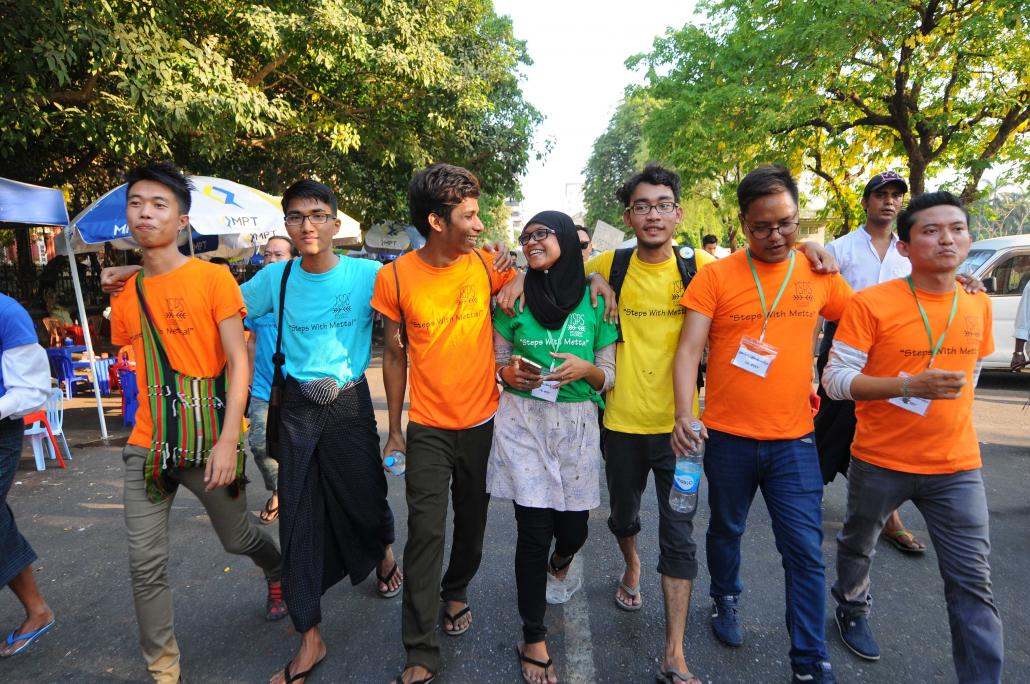
Young people march at an interfaith peace rally in Yangon in May 2016. (Steve Tickner | Frontier)
This year, the National Youth Congress and the Yangon Youth Network had promoted the event a week in advance with a message posted on social media. One key topic of discussion was how young people can contribute to the peace process.
“A government official will give a speech,” the message said.
Ma Thinzar Shunlei Yi, secretary of the NYC, said that government representatives – both when the country was ruled by the Union Solidarity and Development and under the current administration led by the National League for Democracy – had been invited to attend International Youth Day in recent years, but to no avail.
In June, the NYC and YYN invited Union Minister of Social Welfare, Relief and Resettlement Dr Win Myat Aye, Yangon Region Chief Minister U Phyo Min Thein, and regional Minister for Social Affairs U Naing Ngan Lin, and followed up in early August by sending official invitation letters.
Win Myat Aye and Naing Ngan Lin responded to say they could not accept because of other commitments, said Thinzar Shunlei Yi.
dsc_7562-st.jpg
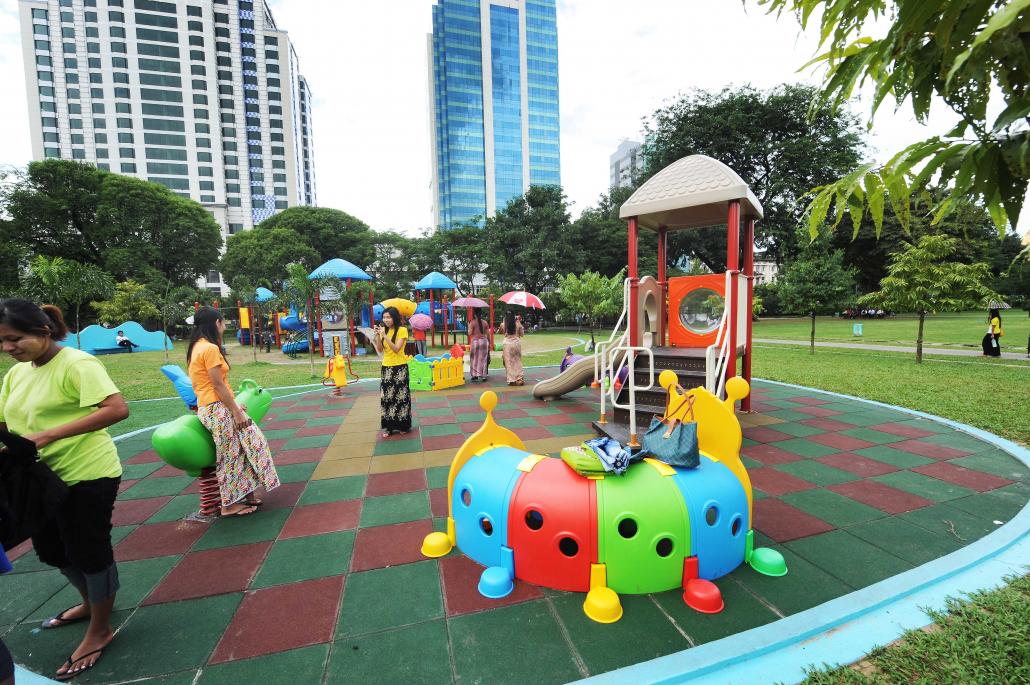
A playground at Mahabandoola Park in downtown Yangon. (Steve Tickner | Frontier)
The main reason for inviting members of the government was to make them more aware of the existence and the activities of youth groups as well as the hopes and needs of the younger generation, Thinzar Shunleiyi told Frontier.
“It is disgraceful that no senior government representatives attend the events we hold to mark International Youth Day, especially when high-level Union officials are always talking about how they intend to focus on youth and listen to what we have to say,” she said.
Ko Aung Kyaw Min, a journalist covering the event, said there was disappointment that the Yangon chief minister did not attend, despite his presence being expected.
“I think he should have come to listen to voice of youth and also because they are interested in hearing his opinions about youth,” Aung Kyaw Min told Frontier.
nswks-iyd-2.jpg
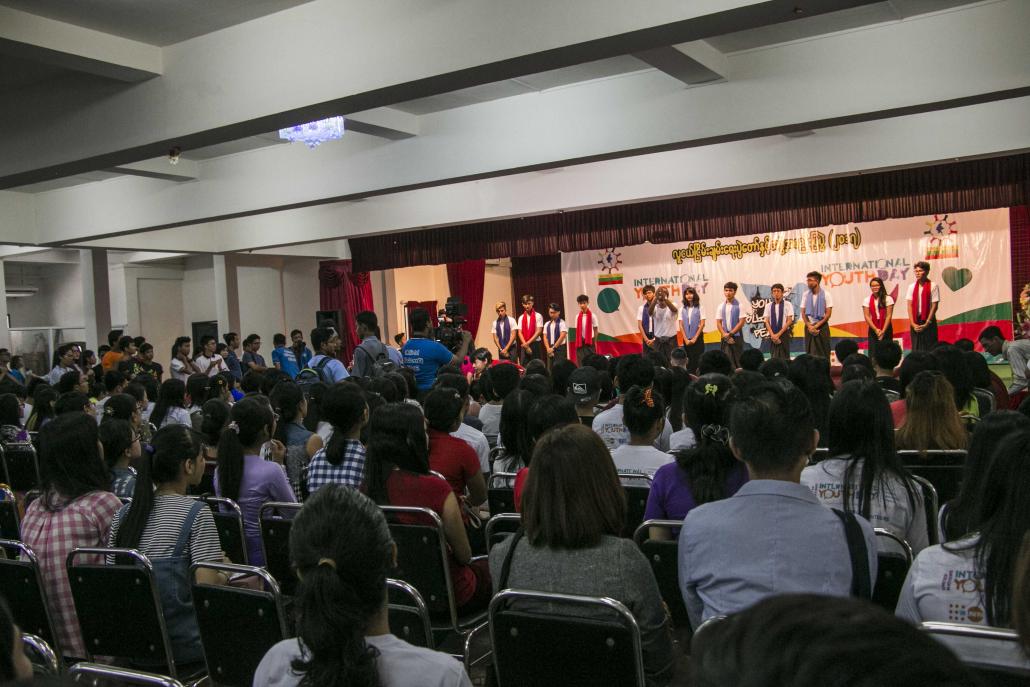
Speakers at an event held to commemorate International Youth Day in Yangon in August. (Nyein Su Wai Kyaw Soe | Frontier)
Speaking to reporters on the sideline of the August 12 event, Ms Janet Jackson, UNFPA representative for Myanmar, said that she hoped the event would highlight the role the youth can play in the country’s peace process.
“There is more and more scope and more possibilities for young people to get involved in the peace process,” she told Frontier. “And we hope that today is part of young people being able to do more, and our message would be to involve young people much more, give young people this space, and enable them to participate as well as represent themselves in these processes.”
Youth organisations have been in negotiations with governments since 2012 to implement a youth policy, aimed at raising the voice of young people in the country’s transition. The first youth forum was organised that year in Yangon’s Hmawbi Township, while a National Youth Congress and the ASEAN Youth Forum were held in 2014. In June, a Youth Forum was held in Monywa, Sagaing Region, including youth activists and civil societies from across the country. Attendees say some progress was made on fast-tracking a new youth policy that is yet to be implemented.
nswks-iyd-4.jpg
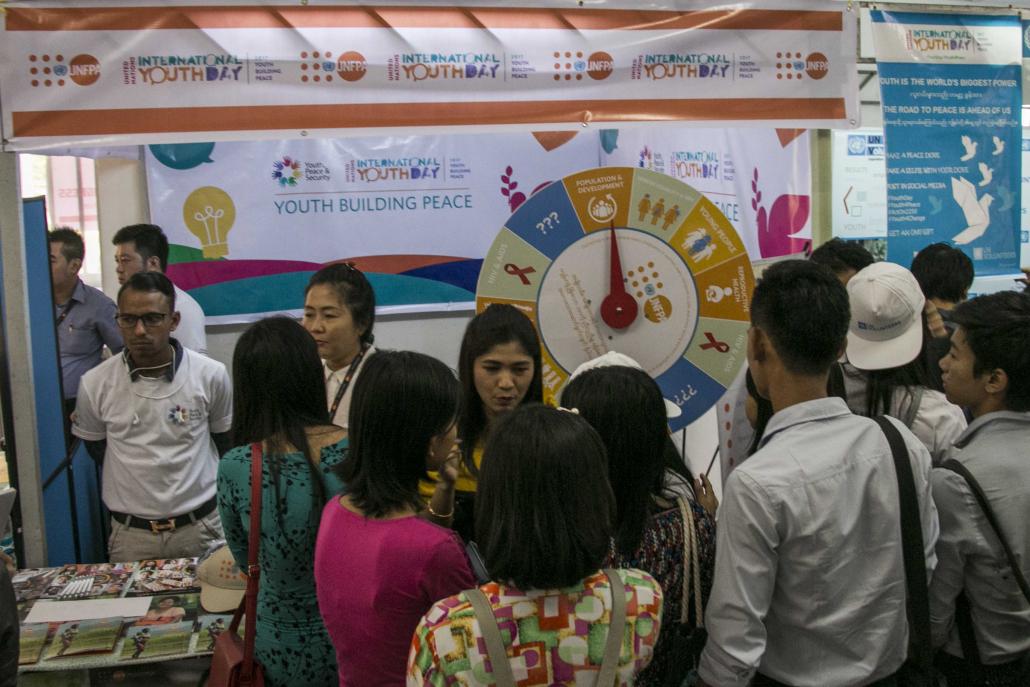
Participants at an event held to commemorate International Youth Day in Yangon in August. (Nyein Su Wai Kyaw Soe | Frontier)
A report in Eleven Media in June said the policy was expected to be implemented by the end of August. According to the report, the policy will include issues related to education, health, literature, culture, security, gender, employment and peace. There were also discussions related to sexual education in schools, as well as the need to improve sports education, healthy food, clean water and toilets in public schools and institutions, the article said.
“We were hoping that the new government would participate more and listen more closely to forming a youth policy in this government era,” said Thinzar Shunlei Yi, adding that she hoped the government would implement the new policy soon.
The committees were working together to implement the policy and would announce it in state-run newspapers once it was ready, Ko Hein Htet, a member of the central committee of the youth policy told Frontier in August.
On September 11, Thinzar Shunlei Yi told Frontier that the government is still reviewing the policy and that a timeline on its implementation was not available.
“We have been speaking with governments about youth involvement for the past six years,” said Thinzar Shunlei Yi. “But even until now the government has not been ready to listen to the voices of young people.”


